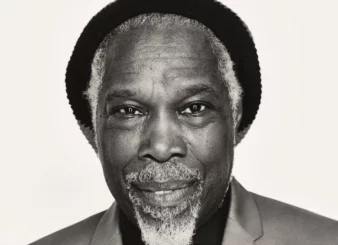Picture this:
At the end of a busy workday, a woman walks into a shop next to the train station to buy a cold drink before her commute home. She goes straight to the fridge to grab a Coca Cola the way she has many times in the past. But today – the shelf is empty. “You’ve got to be joking,” she thinks to herself. “When is there ever no Coke?”
Just then, the assistant comes walking up from the back room pushing a trolley stacked high with Coke. “I’m sorry “he says, handing her a Coke. “The delivery was late today.”
How often do any of us really stop and think about the complex, sophisticated set of operations that make up any one supply chain, let alone the thousands of supply chains we depend upon on a regular basis? Everything we need – from food and drinks to clothes and building materials – it all has to start somewhere and then move through a number of steps and locations to reach its final destination.
Supply chains are impressive and frequently taken for granted, but could they possibly be sexy?
When we look at the level of influence that the supply chain has on an organisation, it’s amazing that supply chain professionals are not among the most highly celebrated and recognised members of the corporate team. Supply chain professionals have control over corporate resources, both inbound and outbound, and responsibility for all the operations required to make a raw material into a shiny new product.
The rise of the Internet and the resulting wave of tech start-ups has caused us to re-examine the sex appeal of the traditional ‘geek’ profile. The wardrobe of a software engineer or a supply chain professional may not be featuring on a runway anytime soon, but we’ve come to regard tech intelligence with an awe that has elevated the ‘cool factor’ of people lucky enough to apply their skills successfully. With their ability to drive costs down, agility up, and forecasts closer to the predictable horizon, supply chain professionals deserve equal ‘cool’ regard.
Supply chains often originate in some of the most exotic parts of the world. As the result of globalisation, a company is just as likely to deal with a factory in the Far East or a sugar producer in the Caribbean, and while many of those locations have intrinsic sex appeal, so do the logistics that move goods from them to processors and consumers around the world.
Take almost any product in our environment – cosmetics, a designer handbag, or even a bag of Walker’s crisps – not only did the raw materials or packaging likely come from another part of the world, they may have traveled through multiple countries on their journey to becoming the object you now hold in your hand. Supply chain has gone through an evolution that led them from vertical integration to something that resembles a virtual operation.
There was a time when a food producer would only hire supply chain professionals that had experience in their industry, and the same would be true for a fashion or jewellery company. Now, however, it is increasingly common to see supply chain professionals working in industries that they have no previous experience in, for example someone with a food background can secure a role in a cosmetics business. This enables businesses to take best practice and value add from different supply chains, adding value and improving their own operation as well as being able to offer skills development and new experiences for each employee.
There is nothing simple about a successful modern supply chain, demand is unpredictable, lead times are long, and it would seem that everything – from soft cheeses to high end designed accessories – is ‘perishable’. Only supply chains, and the professionals that keep them running, make our standard of living possible.
Supply chain is at the heart of everything, it is cool, interesting and empowers the professionals in its ranks to make a real difference in business. In fact, supply chain professionals are often so focused on making success possible that they don’t stop to invest in their own brand or image.
As a result, supply chain is sometimes portrayed a bit boring or dry, a perception that could not be further from the truth. As we’ve discussed, supply chain is equal parts smart, exotic, influential, and diverse – making it undeniably (but unpretentiously) sexy.
This article was originally published by Jayna on LinkedIn.










